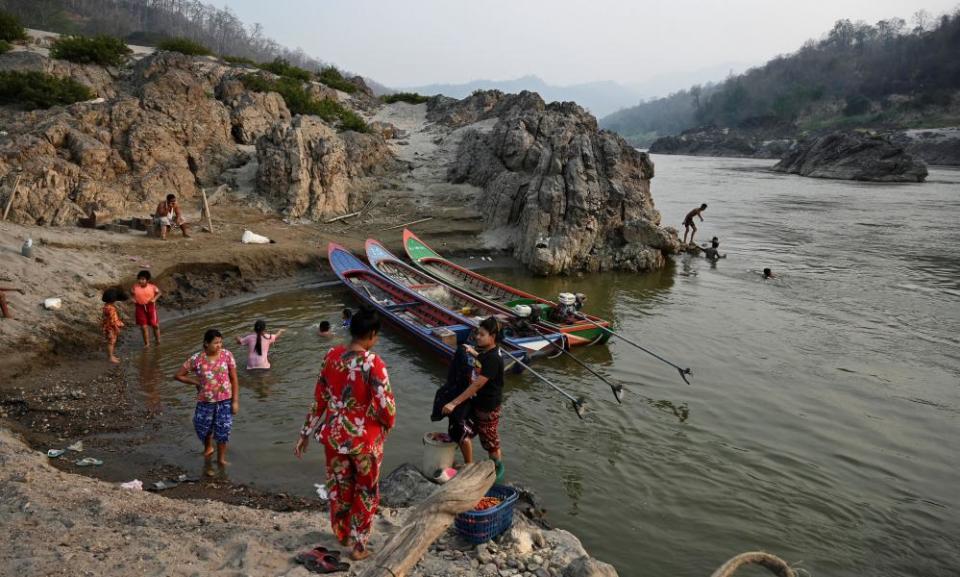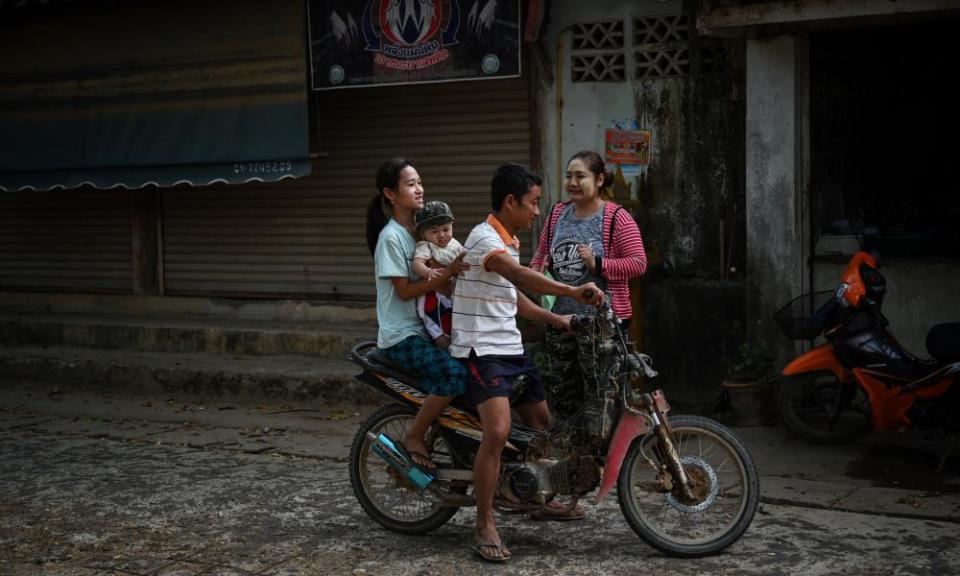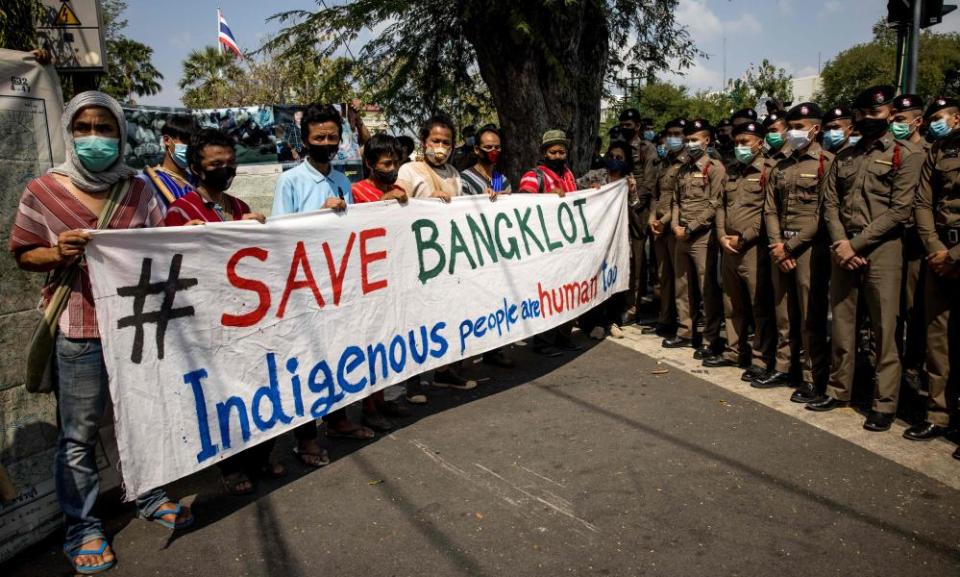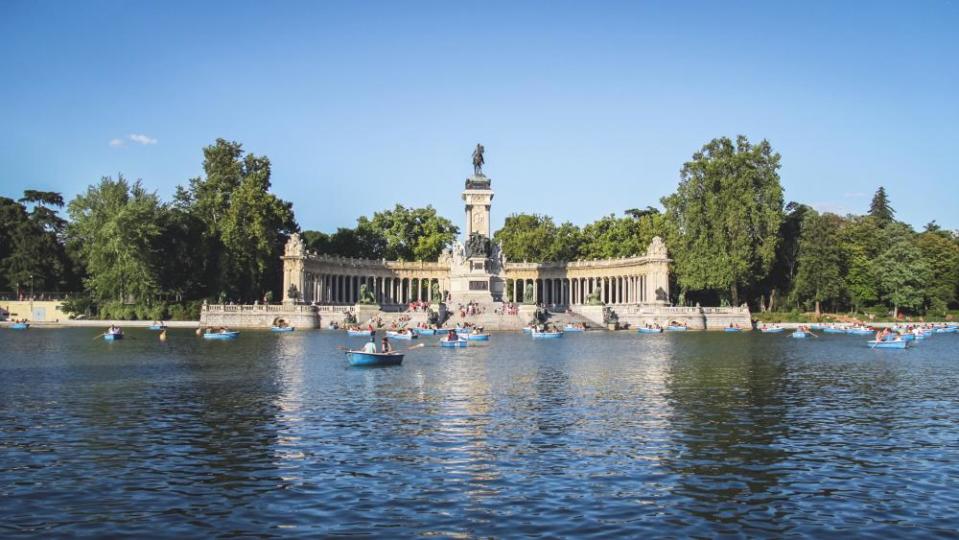‘Low point’ in world heritage committee history as politics ‘tramples’ human rights of the Karen people

Along Thailand’s border with Myanmar, in rich forests filled with rare plants and animals, the indigenous Karen people are fighting for the right to live on their traditional land.
Last month, the UN’s human rights agency said the Karen continued to be forcibly evicted from the Kaeng Krachan forests. Thailand’s application to inscribe the forests as a world heritage site must be denied, the agency said.
Unesco came to a similar conclusion. Yet in a meeting of the world heritage committee, the 21-member countries handed the forests the coveted global status.
Related: The lobbying push that killed off a fight to save the Great Barrier Reef
Like the decision not to place the Great Barrier Reef on a world heritage “in danger” list, the Kaeng Krachan inscription is part of what conservationists say is a worrying politicisation of world heritage decisions.
The UN had said the Karen people were being threatened and forcibly evicted from their traditional lands, and their homes in Kaeng Krachan were being burnt. What are thought to be the remains of one Karen land rights defender, Pholachi “Billy” Rakchongcharoen, were found in an oil drum at a dam in the forest in 2019.


Karen people from the village of Bang Kloi gathered outside the Bangkok environment ministry in the hours before the world heritage decision, daubing a ministry nameplate with red paint.
Moments later, Chrissy Grant, the Australia-based chair of the International Indigenous Peoples’ Forum on World Heritage, told the committee the decision was “one of the lowest points in the history of the [world heritage] convention” and it had “trampled” on the dignity and human rights of the Karen.
“It’s a result of highly politicised lobbying and horse-trading based on the economic interests of committee members,” she said.

Australia stayed silent during the Kaeng Krachan decision. Only Norway spoke up to defend the UN’s advice, later telling Guardian Australia the inscription went against the UN Declaration on the Rights of Indigenous Peoples and other agreements.
Related: The Great Barrier Reef is not on the ‘in danger’ list. Why, and what happens next?
But it was just one of many occasions where members of the committee, including Australia, went against advice from Unesco.
The most headline grabbing example was the rejection of recommendation that the world’s biggest coral reef system, the Great Barrier Reef, should be placed on its “in danger” list – a call that prompted an all-out international lobbying effort from Australia that has delayed the decision until at least 2022.
Australia’s ‘unholy pact’
United Nation advisers to Unesco have told Guardian Australia there are increasing concerns the committee is drifting away from advice designed to conserve the world’s most special places.
Three years ago, when Australia was elected to the world heritage committee, it made an impassioned pledge that it would not support sites being inscribed on the list if the advice went against it.
The head of Australia’s delegation, Stephen Oxley, told the 2018 meeting in Bahrain about an “insidious problem” that was “undermining the credibility” of the world heritage convention.
There was an increasing trend, he said, for the committee to ignore “sound technical advice” and the committee “must do better”. Australia would be an “advocate for upholding the technical integrity of the committee”.
“And I will be clear now that we will not be supportive of inscription of places on the world heritage list where the advice before us is that they should not be inscribed,” Oxley said.
But Australia reneged on that promise more than once during the meeting last month.
Imogen Zethoven, a consultant on world heritage to the Australian Marine Conservation Society, says the reef was one of seven sites Unesco had recommended before the meeting to be placed on the “in danger list”. Australia opposed Unesco’s advice on all seven. None of the sites, including the reef, made the list.
Zethoven says Australia abandoned its pledge and the Morrison government had made an “unholy pact” to avoid the reef being inscribed on the list.
After Unesco recommended the committee place the reef on its “in danger” list, Australia responded with a lobbying offensive that put environment minister Sussan Ley on a diplomatic jet to Europe and sent Canberra-based ambassadors for a day of snorkelling off Port Douglas.
Committee members Bahrain, St Kitts and Nevis, Ethiopia, Hungary, Mali, Nigeria, Saudi Arabia, Oman, Bosnia and Herzegovina, Russia and Spain tabled an amendment supporting Australia.
During the meeting, Thailand said it also supported Australia’s pleas for the reef not to go on the in danger list.
At the same time, Australia agreed to block an “in danger” recommendation for Hungary’s site in Budapest and to inscribe an ancient rock art site in Saudi Arabia, again going against Unesco’s advice.
Unesco had also said more work needed to be done before a site in the Spanish capital of Madrid – the Paseo del Prado and Buen Retiro – should be considered for world heritage status. Australia was among 12 committee members who devised an amendment to ignore Unesco’s advice, and give the site immediate world heritage status.
Spain’s ambassador to Unesco, Andrés Perelló, has admitted to Spanish media that he struck a deal with Australia in the days before the meeting.
Spain would support blocking Unesco’s advice on the reef, Perelló said, and Australia would support the inscription of Madrid’s 18th century avenue.

Politics above conservation
Stefan Disko, a consultant on world heritage for the global human rights group the International Work Group for Indigenous Affairs, says Australia was aware of the human rights issues at Kaeng Krachan because they had raised concerns at a committee meeting two years ago.
“Nothing has changed, but Australia stayed completely silent,” he said. “It is appalling. They have turned a blind eye to human rights violations of the worst kind.
“They should have spoken up. You would expect a country like Australia to uphold human rights – not engage in this appalling behaviour.”
He said the apparent deal-making from Australia and other countries on the committee “completely undermines the credibility of the convention”.
Two years ago, WWF International released a report saying political interests among committee members was increasingly being placed above conservation.
Aslihan Tumer, head of global campaigns at WWF International, says: “Rather than politicisation, we urge parties to invest valuable time and efforts in ensuring these sites are well maintained and managed.”
Peter Shadie is senior adviser on world heritage at the International Union for Conservation of Nature (IUCN), which is the group that spearheads advice to Unesco on its natural sites, such as the Great Barrier Reef and Kaeng Krachan.
“IUCN and many others have raised concerns regarding the growing gap between the world heritage committee’s decisions and the technical advice and recommendations made by advisory bodies,” he says.
On Thursday, Greens senator Peter Whish-Wilson asked the Australian government if it had struck any deals with other committee members. Liberal senator Jane Hume replied that discussion between members of the committee would remain private.
Guardian Australia asked the office of the environment minister, Sussan Ley, if any deals had been done to secure support for its position on the reef.
In a statement, a spokesperson said the government was “committed to upholding a rules-based order and as a world heritage committee member Australia respects a technical approach to committee business”.
“Australia engaged constructively with committee members and based its decisions on the merits of each property and the information of the advisory bodies and states parties.”
The spokesperson said Australia was not one of the 10 countries that proposed the amendment for the Kaeng Krachan site to be inscribed. He said advisory bodies and a consensus of the committee had recognised the site was of outstanding universal value, and so “Australia did not oppose inscription”.
“Ultimately, it is the world heritage committee that has the final say on whether properties are inscribed on the world heritage list,” the statement said.

 Yahoo News
Yahoo News 
